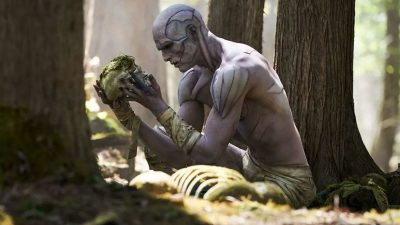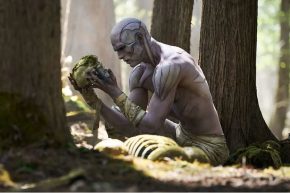There is a book in the Harry Potter series in which British wizards host foreign guests to organize a championship between the most talented students of three schools – and three countries, regions, cultures. These young people are chosen by a magical object, the Goblet of Fire, which is also mentioned in the book’s title, to rise from the unknown mass of their fellows and strive for a victory solely through their talent. It might mean prestige, social and financial capital and an unstoppably upward career.
Looking at participants of the Müpa’s Rising Stars series, this parallel inevitably came to my mind. I saw musicians who are my age or younger (yeah, the wizarding school generation), and they already won a bunch of great competitions and talent shows. If the European Concert Hall Organisation (ECHO) used a magical goblet to choose the participants, it also wouldn’t be a question why to choose these talented young people over thousands of their fellow students and colleagues. Let’s get a glimpse on music’s young and striving heroes!
London’s Champion – Peter Moore!

(c) Kaupo Kikkas
This Northern Irish boy became famous in the UK as a child prodigy. With 12 years, he attended the music competition of BBC and won. The Barbican Centre London nominated him to the Rising Star programme, since he’s been playing for the London Symphonics since he was 18. This is even more interesting if we consider that not only himself is a „rising star” but also his instrument. For centuries, one couldn’t really hear trombone apart from orchestras, and without solos, it was a supporting instrument even there. Nowadays, the number of trombone variations of classical works is constantly increasing – Peter Moore himself also plays Brahms’, Beethoven’s and Schubert’s works. Apart from this, we can hear a contemporary piece ordered by ECHO, which was written by Roxanna Panufnik originally for trombone.
Paris and Lisbon’s Champion – Anaïs Gaudemard!

(c) Nicolas Mignani
This girl with a lovely name was nominated by the French Cité de la Musique and the Portuguese Calouste Gulbenkian Foundation. Her magical object is the harp, and this concert on a Friday night is surely the best choice after a stressful and busy week: such an instrument, played by such a talented musician, will make us relax completely. Among other things, Anaïs Gaudemard brings moonlight (Debussy) and the ripples of the river (Smetana) in the concert hall. ECHO also ordered a contemporary piece for her; it’s Camille Pépin’s work Nighthawks, inspired by Edward Hopper’s painting. Of course, Anaïs Gaudemard won many harp competitions as well, for example in 2012 and 2015, and she’s not only a successful soloist but has also been playing with a lot of great orchestras all across Europe.

Edward Hopper: Nighthawks
The German Electors’ Champion – the Amatis Trio!

Amatis Piano Trio.
Photo: Marco Borggreve
This group is supported by institutions from four different German cities – Cologne, Hamburg, Baden-Baden and Frankfurt. German violinist Lea Hausmann, British cellist Samuel Shepherd and Chinese-Dutch pianist Mengjie Han won the audience’s prize at a competition in the Netherlands after working together for only a few weeks. Eventually, they attended other competitions in the UK and Germany. They not only like to compete themselves, but they are also the founders of a prize aimed to support contemporary chamber music. That’s no surprise, then, that apart from Haydn’s and Mendelssohn’s classical pieces, the group presents a contemporary one, Andrea Tarrodi’s Moorland, for the first time ever on Müpa’s stage.
Catalonia’s Champion – Josep-Ramon Olivé!

Festival les Jardins de William Christie
His magic lies in his voice. He was born in Barcelona and obtained his first degrees in conducting and singing there, and then he went to London to study at a Master’s programme on singing and an opera course. Even more Europe: in Budapest, he’s going to sing the classical pieces, Schubert’s and Richard Strauss’ songs, in German. His classical composer commissioned by ECHO, Raquel García-Tomás, is also from Barcelona, but we can imply from the title (Chansons Trouvées, so “found songs”), that this songtext will be in French. If Amatis Trio represented Europe through the members’ different backgrounds, in this case the multilingual and multicolour soloist will, who is accompanied by a British pianist Ian Tindale. Josep-Ramon Olivé was chosen for the programme by L’Auditori Barcelona and the Palau de la Musica Catalana.
Brussels’ and Amsterdam’s Champion – the Quatuor Arod!

(c) Richard Dumas
This string quartet comes from France, but apart from their homeland, they also won competitions abroad, like in Denmark and Germany, the latter one being the highly prestigious ARD-Musikwettbewerb. It’s not surprising, then, that this time Quatuor Arod wasn’t even supported by French institutions but by Bozar Brussels and Concertgebouw Amsterdam. From the four boys, Jordan Victoria was born in 1992 in a family of artists in Bordeaux, he’s one of the violinists. Alexandre Vu started violin with 10 years, still back in Vietnam, and he moved to France in 2005 to accomplish his studies. Tanguy Parisot started his career as a violist in Brest at the age of 6, and Samy Rachid cellist in Marseille at the age of 10. They are going to play classics in the Müpa by Haydn, Webern and Schumann.
Vienna’s Champion – Kian Soltani!

It was hard to decide who should be my favourite, as I like all of the mentioned instruments (and I love the harp), and all songs and pieces promise us great evenings. Then I saw Kian Soltani, born in 1992 in Bregenz to musicians who immigrated from Iran. The cellist rose to national recognition in Vienna and to international at a cello competition in Helsinki. His first CD bears the title Home – and he’s proud to say that his “home” is partly his country, Austria, and partly his parents’ Persian heritage, and both inspire him as an artist and a human. Apart from Beethoven and Shostakovich, he plays a contemporary piece as well, written by an Austrian jazz-pianist David Hellbock and supported by pianist Aaron Pilsan who was born in 1995 also in Austria. Behind Kian Soltani, there is the Wiener Konzerthaus and the Musikverein Wien, and I still can see bright and clear which way to walk from the one to the other. Maybe this is the reason why I’m so happy to see the Austrian-Persian star shine brightly – but I also wish the others, naturally, to sparke and enchant for many more decades in Europe’s and the world’s concert halls.
Meet and greet with the artists, including autographs, after all concerts in Festival Square. Moderated and interpreted by Endre Tóth.

























Comments
1 Responses to “Rising Stars – Young wizards of music bring Europe to Budapest”